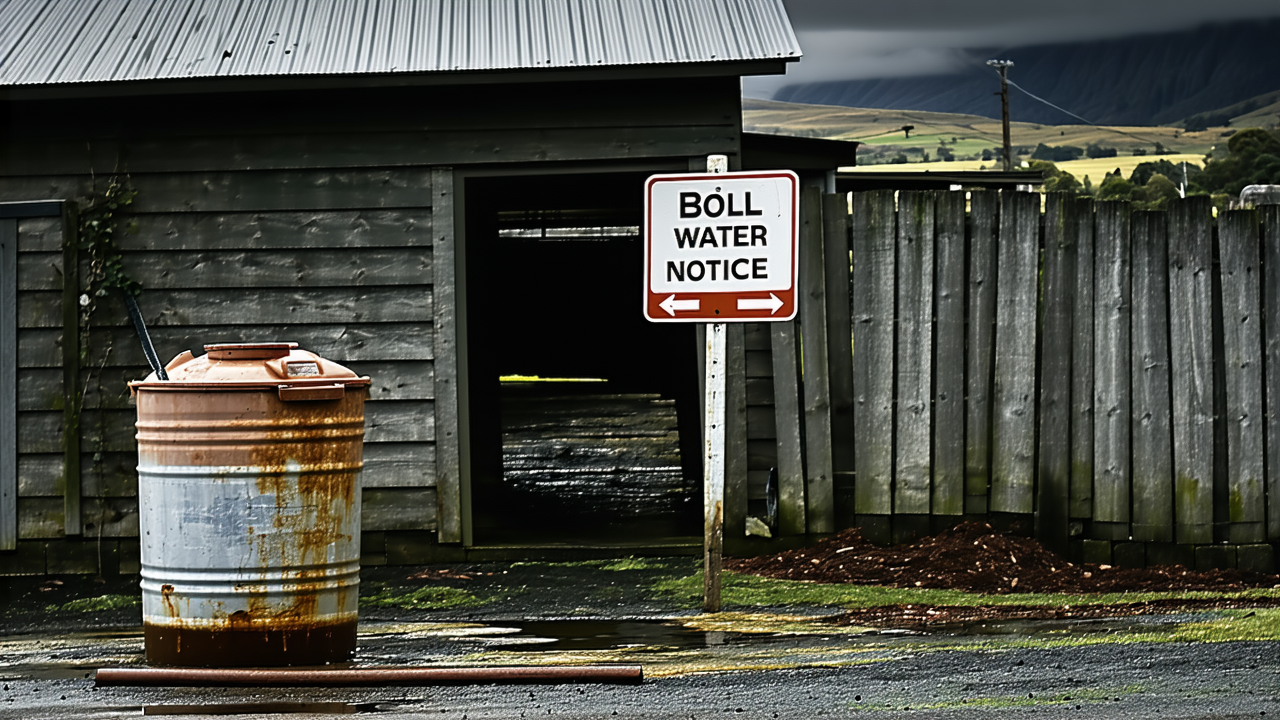Ten Years of Boiling Water in Kāeo: 'They Just Can't Rely on the Water'
Ten Years of Boiling Water in Kāeo: 'They Just Can't Rely on the Water'
It has been 10 years since residents in the small Far North town of Kāeo were placed under a boil-water notice—but it is not a milestone anyone is celebrating.
A Decade of Struggle
Chef and cooking teacher Anna Valentine, who lives on Kāeo's main street, is among those affected. She said she had never been able to drink from the tap, and at times she could not even use the water for laundry.
"I wasn't able to do my washing without it turning brown, basically. And every now and then it would just be super-brown, and then it would get clearer, and sometimes it would go off, and we wouldn't know, so we'd be out of water and we'd be calling around for help," she said.
A History of Neglect
The boil-water notice began in 2015 following a flood that damaged the local water plant. Over the years, the plant has not been adequately maintained or upgraded, leaving residents with no choice but to rely on bottled water or collect rainwater from rooftops.
Kāeo's water woes are emblematic of the neglect suffered by many rural, Māori-majority towns. For the local iwi, the issue is not just about water safety—it's about dignity and identity.
"It's about the dignity of Kāeo, the mana of Kāeo. And whānau in Kāeo have lived with daily anxiety around whether their water is safe to drink. That really affects not only your health, your hauora [wellbeing], but it sort of affects your own self-worth and your identity as being from Kāeo," said Te Kāhui o Kāeo representative, Kaio.
A Collaborative Solution
Kaio said the operator lacks the resources to fix the problem alone. He emphasized that the solution must be a collaborative effort between the council, the operator, and iwi.
"My personal opinion, indeed my professional opinion, is that the operator lacks the resources to fix it. It has to be a collaborative solution," he said.
A Hope for the Future
Anna Valentine, like many in Kāeo, hopes for a future where her children can drink clean water from the tap. For now, she and her family rely on collecting water from a rooftop container, a task she calls "crazy" in a country known for its natural beauty and resources.
"I mean, we live in New Zealand, but it feels like we're in a bit of a third world country up here in Kāeo, having to go out every day and fill our plastic bottles from a water container that we collect off the roof. It's just crazy, actually," she said.
A National Issue
Kāeo's boil-water notice is not the longest-running one in the country. A 2024 Drinking Water Regulation Report stated that 74 long-term 'consumer advisories'—which include boil-water notices—were in place at the end of last year, and 20 council supplies serving a total of 7000 people had advisories in place for three or more years.
The persistence of long-term consumer advisories represents a significant regulatory and public health challenge, according to the report.
A Call for Action
As the situation in Kāeo continues to draw attention, there is hope that a solution will be found soon. With Taumata Arowai preparing to meet the operator and discuss a path forward, residents remain hopeful that one day they will no longer have to boil their water or rely on bottled supplies.
